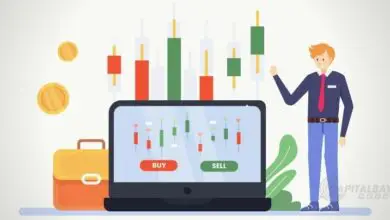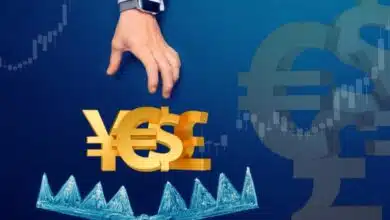Forex Risks Traders Should Consider, While Trading in the USA

Forex trading involves buying and selling foreign currencies similar to stocks and bond trading. By trading one currency for another and by selling high and buying low, traders yield profits. In terms of trade volume, foreign exchange markets are the world’s largest since forex assets are highly liquid.
In addition to this, forex traders in the US have the advantage of choosing the best forex brokers in USA from thousands of options available in the market. Although the forex market offers a range of opportunities for making profits, there are also added risks and uncertainties associated with forex trading as with all forms of trading and investments. However, these inherent risks can be minimized by following proper rest management trade strategies. Let us look into the different forex risks that traders must consider while trading in the US –
Market Risk
While weighing the opportunities to trade in currencies, forex traders in the US must evaluate the stability and structure of their issuing market. In several Third World and developing countries, the exchange rates are normally fixed to a particular currency (for example, the US dollar). The value of the currencies may fluctuate due to several factors like economic conditions, natural disasters, political events, and other uncertain events. Since the nature of trading is speculative, if a trader believes, a particular currency will decrease in terms of value, they may start withdrawing their assets which further devalues the currency. This may lead to losses for those who keep holding the currency whose value is depreciating.
Leverage Risk
Leverage in foreign exchange trading requires an initial investment, known as the margin, in order to access substantial trades in the forex market. Small fluctuations in currency prices can lead to margin calls, where traders have to pay an extra margin. A leverage risk involves magnified losses while trading on margins. When the market becomes extremely volatile, leverage is often used aggressively which leads to huge losses in excess of the initial investment. Since the initial investment is usually smaller than the forex trade value, traders often forget the amount of capital put at risk. Most forex brokers in US provide leverage that amplifies profits as well as losses. Hence, traders must use leverage responsibly to avoid potential risks.
Liquidity Risk
Liquidity refers to how easily a security or asset can be purchased or sold in the trade market. In the forex world, it basically shows how quickly a currency can be converted to another. The forex market is highly liquid but there may be certain periods of illiquidity when traders may find it difficult to trade a particular currency due to the absence of enough buyers and sellers in the market. Illiquidity can result in slippage, where the traders’ orders are filled at different prices than expected. Liquidity risk depends highly on government policies and currencies around the foreign exchange market.
Counterparty Risk
In any financial transaction, the counterparty is the company that offers an asset or security to the traders. Hence, the counterparty risk includes the risk of default from the US forex brokers or dealers in the particular transaction. In forex trading, forward or spot contracts on foreign currencies are not guaranteed by any clearinghouse or exchange. The counterparty risk in spot currency trades occurs due to the solvency of market makers. When market conditions are volatile, the counterparty may refuse or fail to abide by the contracts, which can lead to losses for the traders. Hence, it is recommended to choose a reliable and reputable forex broker in US to minimize counterparty risk.
Fraud Risk
Another important type of risk that every forex trader must be aware of is fraud risk. Online trading has become more rampant than ever before and so, has the number of fraud cases. Although there has been a substantial improvement in weeding out unscrupulous forex brokers, there are still enough fraud cases in the forex market. Hence, it is recommended to choose a reliable broker and learn about potential scams which may include fake investment opportunities or the ‘get rich quick’ programs.
Bottom Line
Forex trading comes with several risks and the losses associated may be higher than initially expected. A small initial charge or fee can lead to substantial losses due to the nature of leverage trading. Periods of illiquidity, time zone differences, political unrest, government policies, and many other factors have a substantial impact on the currencies and financial markets on a global level. Although forex assets have seen maximum trading activity in recent years, the dangers involved cannot be neglected. By managing and understanding the potential risks, traders can potentially increase their profits and enhance their trading experiences in the US.
FAQ
What Are the Major Risks in Forex Trading in the USA?
The major risks in forex trading in the US involve market risk, leverage risk, liquidity risk, counterparty risk, and fraud risk.
How Can You Avoid Risk in Forex Trading?
Risks in forex trading can be reduced by following proper risk management strategies and having a better understanding and knowledge of the forex market. Traders must get a good grasp on the idea of leverage and build a well-designed trading plan. Risks can also be avoided by setting a risk-reward ratio, using limits and stops, managing emotions, keeping an eye on major events and news taking place around the world, and starting forex trading with a small account or a demo account.
How to Trade Forex in the USA?
To start trading forex in the US, traders must choose a regulated, reliable, and licensed forex broker to ensure safe trading. Before a forex broker can accept traders as clients, the companies must be registered as Retail Foreign Exchange Dealer under the Commodity Futures Trading Commission, and be regulated by the National Futures Association.



